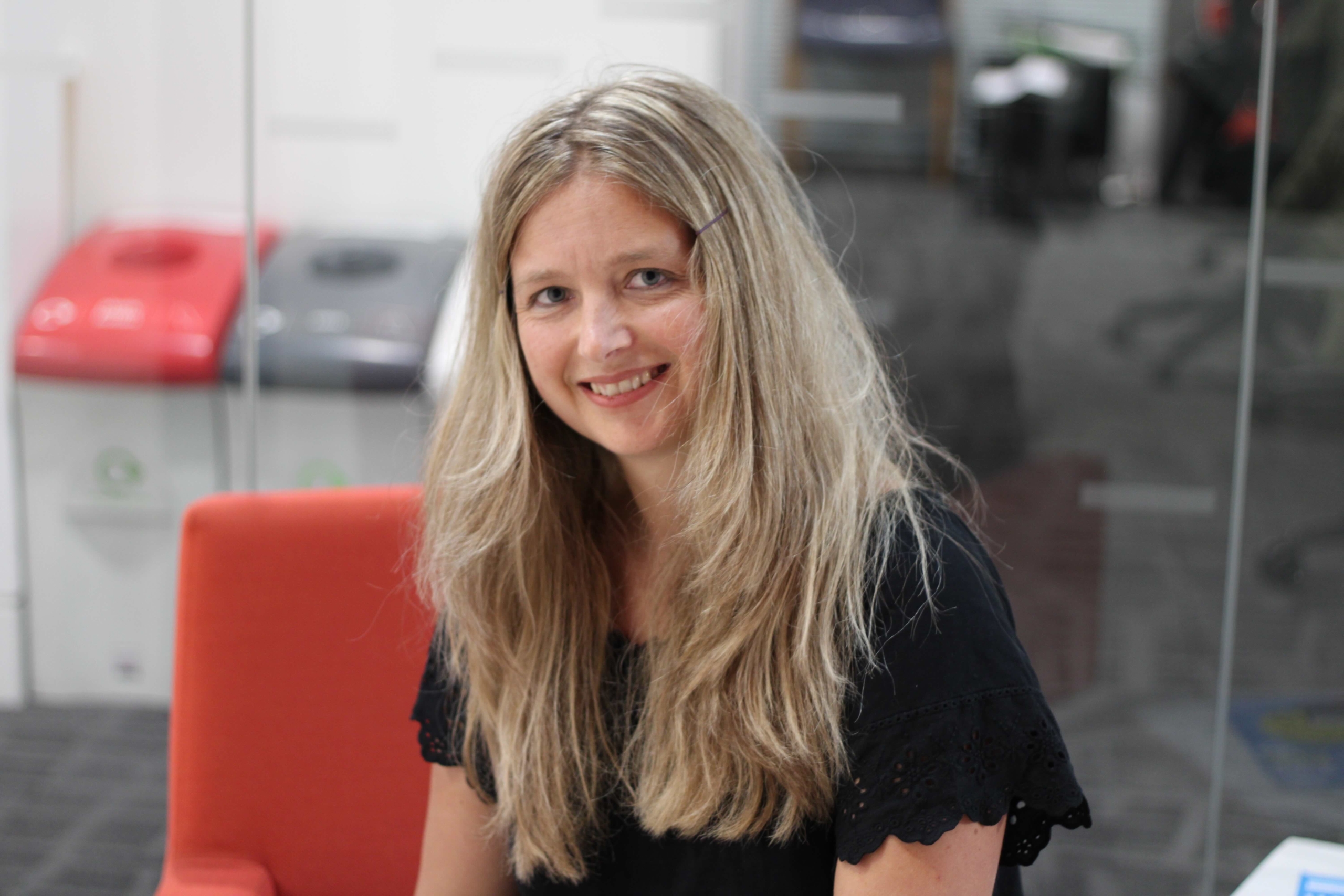Closing date: 07/03/2025
MB-PhD Project: In-depth omics profiling of the apical fallopian tube surface towards early ovarian cancer targeting
Lead Supervisors: Dr Christine Schmidt
Co-Supervisors: Prof. Richard Edmondson and Prof. Igor Larrosa
Applications Deadline: Friday 7th March 2025
Project Keywords: Ovarian cancer; STIC lesions; Fallopian tubes
Research Opportunity: Intercalated PhD, leading to the award of PhD and MBChB
Project Outline
Ovarian cancer remains one of the deadliest gynaecological cancers, often diagnosed at advanced stages when treatment options are limited. Discoveries over the past decade indicate that many of these cancers originate in the fallopian tubes, presenting a unique window of opportunity for early detection and intervention. This project aims to explore the molecular landscape of the fallopian tube surface during the early stages of ovarian cancer, focusing on precancerous lesions arising in this environment. By mapping these changes, the research could uncover potential biomarkers for early diagnosis and new therapeutic targets.
The study will use innovative profiling techniques to identify key surface molecules that change during early cancer development. These findings could pave the way for new methods of detecting the disease at its earliest, most treatable stages, as well as inform the creation of targeted therapies using biologics or advanced cellular treatments.
In the long term, this project has the potential to deepen our understanding of ovarian cancer’s early stages and provide alternative, less invasive detection and treatment options, for high-risk women, particularly those with genetic predispositions. Such strategies could preserve fertility in these women and improve their quality of life, representing a significant advance in ovarian cancer care.
We are committed to fostering a supportive and inclusive research environment, aligning with principles of Equality, Diversity, and Inclusion (EDI). This project welcomes applicants from all backgrounds, encouraging diverse perspectives and collaborative research. The studentship also offers strong career development opportunities, including mentoring, engagement with Patient and Public Involvement and Engagement (PPIE) initiatives, and collaboration within the NEMO (Novel Early Markers for Ovarian cancer) consortium, a friendly, highly dynamic and international group focused on early ovarian cancer detection. We seek motivated candidates with a background in cell and molecular biology, or related fields, and a strong interest in cancer research.
About Dr Christine Schmidt (project Lead Supervisor)
Christine completed postdoctoral positions in Prof. Stephen Jackson’s group at the Gurdon Institute/University of Cambridge between 2011 and 2016, and Dr Tom Misteli’s group at the National Cancer Institute, National Institutes of Health, USA, between 2009 and 2011. She was awarded her PhD in Dr Frank Uhlmann’s group at the CRUK London Research Institute/University College London where she performed her studies between 2004 and 2009.

About the lab group
Find out more about the lab group involved in this project and how we support your wellbeing, learning and career development.
I aim to inspire students to become independent, critically-thinking researchers who are passionate about scientific discovery. I hope to guide them in producing transformative science that has the potential to impact cancer treatment, while fostering a commitment to addressing the biggest challenges in the field. My objective is to help them build the skills necessary for success, preparing them for leadership in research.
I value a diverse and collaborative research environment, with team members from different career stages and backgrounds. My lab encourages independence, but also promotes teamwork and exchange of knowledge. By working on complementary projects and using shared techniques, researchers create a synergistic atmosphere that drives innovation and supports individual growth.
Once trained, students are expected to lead their projects, contribute novel ideas, and drive their research forward. I anticipate them to become experts in their area and to publish high-quality work. Regular meetings – both individually and in group settings – are essential for tracking progress and fostering open communication.
I encourage students to explore diverse career paths and actively guide them in seeking the right opportunities to align with their goals. Through mentorship, I offer advice, connections, and professional development support to help them succeed. I like to share my experience, knowledge, and connections to support the growth and development of my students. I encourage them to seek opportunities and collaborations that align with their long-term goals, fostering their professional development.
I emphasise the importance of maintaining a healthy work-life balance. I believe that mental well-being and effective time management are key to productivity and creativity in research, and I work with my students to ensure they achieve this balance.
Key information
Find answers to some common questions about our MB-PhD Studentships.
To apply to intercalate onto the PhD in Cancer Sciences component of the MB-PhD, you must meet the below criteria and satisfy the general requirements for permission to intercalate set by your institution, including passing all components of the MBChB at first attempt in the year prior to intercalation.
A University of Manchester MBChB student
- holding a BSc (hons) 2.1 or above in a relevant subject and in year 2 or year 3 of the MBChB or year 1 or year 2 of GEM; or
- currently studying in year 3 of the MBChB or year 2 of GEM
A University of St Andrews Medicine BSc (Hons) student on the Manchester course pathway:
- holding or predicted a BSc (hons) 2.1 or above and be intending to intercalate straight onto the MB-PhD ahead of your arrival in Manchester or by no later than between year 3 and year 4 of the Manchester MBChB programme
A University of Leeds MBChB student:
- currently studying in year 3 of the MB ChB
International applicants (including EU nationals) must ensure they meet the relevant academic eligibility criteria (including English Language).
The PhD component of the MB-PhD studentship is usually funded for three years, or four years in exceptional circumstances with prior agreement of MB-PhD Committee and supervisory team.
The studentship covers:
- An annual stipend of £21,000 per year to help with living costs
- Full funding for your PhD tuition fees (at the UK rate, with fee bursaries available for high-performing EU/International candidates)
- PhD project consumables and running costs, including costs for researcher development such as conferences and travel
- MBChB tuition fees (at the UK rate) for a maximum of four years
Here are our quick steps to apply for our MB-PhD:
1. Eligibility
First, you need to check you are eligible to apply for an MB-PhD. Please see the eligibility tab (above) to read all criteria.
2. Contact supervisors
You can explore the range of MB-PhD opportunities that are open to application on our Research Opportunities webpage.
We encourage you to contact the supervisor of any MB-PhD projects that you are interested in before starting your application. Having these conversations will help you to get a feel for the different research themes and projects on offer.
3. Register
Register to apply for our MB-PhD opportunities using the Postgraduate Application Form. You must create an account to register.
4. Create a new application
When you create a new application make sure you select the following:
- Academic Career – Postgraduate Research
- Mode of Attendance – Full-time
- Program Description – search for MB-PhD and then select the MB-PhD Programme
- Candidates apply for the MB-PhD programme – under ‘Research Title’ list MB-PhD Programme. You can provide supervisor preferences/research interests in your accompanying supporting statement and these will be considered at and after interview
- If you are shortlisted, you’ll be interviewed by the MB-PhD Programme Directors and Education Committee before being accepted onto the programme “in principle”. You will be matched with a supervisor based on your interview performance and project/research preferences
- If successful at interview, you will be asked to meet with a nominated MB-PhD supervisor in the subsequent week for them to review and approve your PhD offer
- For funding sources, please include the following information:
– Select ‘Yes’ from the drop-down
– Type of Funding: University of Manchester Scholarship
– Awarding Body: Cancer Research UK MB-PhD
– Status of Funding – Awarded
– Funding Covers – Fully Funded
– Leave the remaining boxes blank
5. Supporting documents
Your application form must be accompanied by several supporting documents:
CV
This should include:
- qualifications (GCSE, A-level or equivalent, and any higher education qualifications, including grades, and your current programme)
- academic prizes, research projects, and academics interests
- extracurricular interests, and activities and positions of responsibility relevant to your application
The information you provide in your CV will be considered in relation to widening participation, and/or university access policies, to ensure that all applicants are treated fairly.
Supporting statements
This should be 1,000 words maximum and include your reason for applying to the MB-PhD programme and your interest and suitability for the project. You can include project/research interest/s here and these will be considered at and post-interview.
References
You need to list two referees, one of which must be an academic referee from The University of Manchester, The University of Leeds or The University of St Andrews-Manchester pathway MBChB programme.
This could be a:
- Clinical debrief tutor
- PEP tutor
- Literature research project supervisor
- PPD tutor
References cannot be submitted by a supervisor named on the project you are applying for.
Supporting documents can be uploaded and submitted with the online application form.
If you have any issues, your supporting documents can be sent directly to the Doctoral Academy Admissions Team at admissions.doctoralacademy@manchester.ac.uk, CC’ing in mcrctraining@manchester.ac.uk.
6. Acknowledgement and review process
Once you have submitted your application form, we will email you with an acknowledgement.
We will review your application after the application deadline and once we’ve received all your supporting documents. If successful at interview, we will also share your application with a nominated supervisor(s) to review.
7. Interviews
7. Interviews
We will email you if you are invited to interview.
Interviews will take place at the Oglesby Cancer Research Building in Withington in Spring 2025.
8. Applying to intercalate
UoM MBChB students must complete an intercalation Expression of Interest form by Friday 24th January 2025 (we may be able to consider late applications to intercalate in exceptional circumstances). This form is available on 1MedForms via the following link: https://www.onemedforms.manchester.ac.uk/
UoL MBChB must apply to intercalate via UoL processes by Friday 24th January 2025.
University of St Andrews Manchester pathway students can contact mcrctraining@manchester.ac.uk for guidance.
Key dates
- Intercalation deadline: Friday 24th January 2025
- Application deadline: Friday 7th March 2025
- Interviews: w/c 28th April 2025
- Start date: September 2025
Useful Links
MB-PhD Studentships
Find out more about our MB-PhD Studentships which allow you to study a fully-funded PhD alongside your medical degree.
Get in Touch
Contact Dr Georgina Binnie-Wright, Postgraduate Programme Manager.
A Day in the Life of an MCRC MB-PhD Student
Watch our short video to see what it's like to be an MB-PhD student in Manchester.
Researcher Stories
Read first-hand experiences of from cancer scientists from across Manchester.
Why Manchester?
Find out why postgraduate students choose to study in Manchester.





